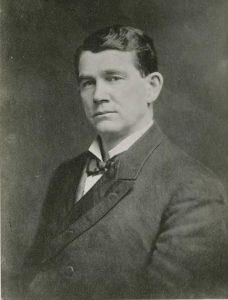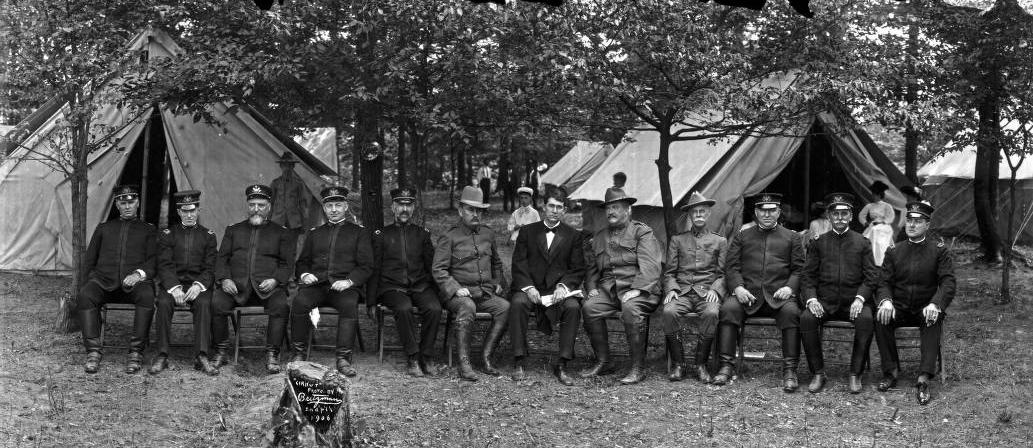
Photo info ...
Credit: Bass Photo Co Collection, Indiana Historical SocietyView Source
(Apr. 4, 1863-Aug. 1, 1920). Born near St. Joseph, Illinois, James Franklin Hanly moved to Warren County, Indiana in 1879. Admitted to the Indiana bar in 1889, he won election the next year to complete the term of George W. Cronk in the Indiana Senate. During this time, he gained a reputation as a vigorous orator and debater.
From 1895 to 1897, Hanly served in the U.S. House of Representatives. Gerrymandered out of his district, he returned to Lafayette, Indiana to practice law. He was one of five candidates in 1899 for the U.S. Senate but lost to eventual winner .

Hanly reentered state politics in 1904 by defeating Democrat in the gubernatorial race. A political maverick who often acted independently of his party, Hanly embarked upon a major reform of state government. He secured legislation that halted gambling at State Fair horse races, urged the creation of the Indiana Railroad Commission (1905), and reorganized charitable and correctional institutions along nonpartisan lines (1907).
Despite his support for a broad progressive program, Hanly was most concerned with . In 1908, he convened a special session of the General Assembly to enact a “county option law,” enabling residents to decide through popular referendum whether to permit the sale and distribution of alcoholic beverages.
Hanly remained active in the prohibitionist cause until his death. He founded and edited in Indianapolis the prohibition-oriented (1915-1920), a weekly organ of the prohibition crusade. Recognizing the fragmentation of the movement, Hanly formed the Flying Squadron of America to promote prohibition nationwide. In 1916, he declined the Progressive party’s nomination for governor to accept the National Prohibition party’s presidential nomination. After losing the election, Hanly continued to speak on behalf of prohibition. He died in an auto-train accident while on a speaking tour in Ohio.

Help improve this entry
Contribute information, offer corrections, suggest images.
You can also recommend new entries related to this topic.